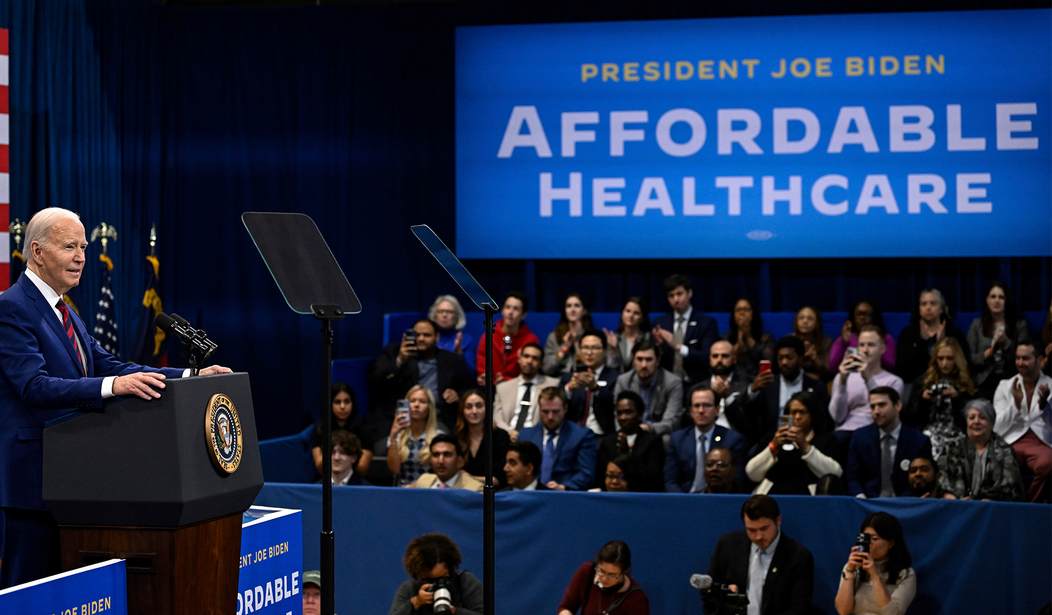When I was a kid, my parents taught me that any apology followed by the word “but” was no apology at all. In fact, they said, you might as well not even try. When I became a parent, my wife and I instilled that same point into our children - no justification, no buts - just say you’re sorry.
So when I heard Senator Elizabeth Warren say in an interview on MSNBC, “Violence is never the answer but people can be pushed only so far,” I harkened back to the words of my parents. What exactly was the Senator saying? Can we justify cold-blooded murder or really any act of violence now because “people can only be pushed so far?”
As the prophets teach us, who can divine the hearts of men (or women)? But I do think it’s safe to say that Senator Warren was expressing the frustration of millions of others with the way our health insurance system currently functions. In fact, I share the same frustration.
But what is lost on the Senator from Massachusetts and others, particularly on the Left, is that the very things they advocate for, more government involvement and government-mandated healthcare (Obamacare), are the very things that are wrong with the system we all loathe.
From a 10,000-foot view, there are three specific challenges that must be addressed if we are going to improve our healthcare system - access, quality, and cost. In each instance, government involvement has made these worse, not better. Under Obamacare, we were told that you could keep your healthcare plan. PolitiFact named that the “Lie of the Year” in 2013 while cancelation letters went out to almost 4 million Americans. President Obama personally apologized to Americans for losing their healthcare coverage. “If you like your doctor, you can keep your doctor” was the signature catchphrase President Obama used to sell the Affordable Care Act to the American people. Obamacare’s flagship website, healthcare.gov, no longer even addresses the issue. In the government-run “marketplace” that is Obamacare, hundreds of thousands of doctors refuse to participate because negotiated prices are lower and red tape is onerous, leaving many patients stuck in the marketplace with very limited choices.
Recommended
Access to coverage, which is the promise of a government-run system, is not always access to care. Look at Canada where, in 2024, physicians reported a median wait time of 30 weeks. In that country, healthcare is rationed and unelected health panels reign. Moreover, the quality of care suffers as well simply because the best doctors refuse to participate. Why deal with government mandates, paperwork in triplicate or price controls when you can decide not to participate and run your practice without bureaucrats in Washington directing from on high your every move?
Finally, there is the issue of cost. Healthcare costs continue to grow. Relative to the size of the economy, healthcare costs have increased over the past few decades, from 5 percent of GDP in 1962 to 17 percent in 2022. About half of U.S. adults say it is difficult to afford health care costs, and one in four say they or a family member in their household had problems paying for health care in the past 12 months. It is only when one removes the middleman, i.e. the government, from the healthcare system -- through the use of health savings accounts and boutique medicine -- that prices stabilize and sometimes even drop.
Senator Warren’s comments about killing someone, “even” a healthcare executive, are troubling enough. Yet what she doesn’t understand, or is unwilling to admit, is that she and others who share her views about our broken healthcare system made the very system that has “pushed people so far.” To fix it, the answer is not more dictates from Washington, D.C., it is fewer. Remove the middleman and allow individuals and families the ability to use their own healthcare dollars to make their own decisions. No ifs, ands…or buts.
Dr. Robert McClure is the president and CEO of The James Madison Institute in Tallahassee, FL.

























Join the conversation as a VIP Member